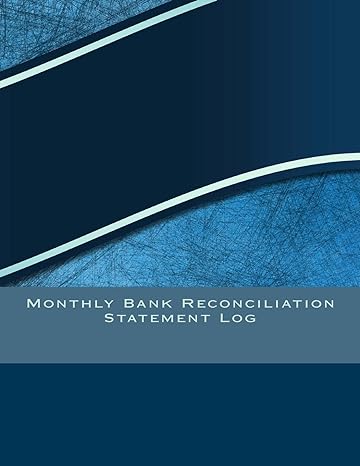Question
California Incorporated (CI) is a private company that has historically reported its results in accordance with ASPE. To fund its significant growth, the company issued
California Incorporated (CI) is a private company that has historically reported its results in accordance with ASPE. To fund its significant growth, the company issued common shares to another investor. In conducting its due diligence on the company before buying the shares, the new investor closely reviewed CIs financial records. The three issues identified are listed below:
1. Long-term contracts: CI accounts for revenue from long-term contracts using the completed contract method, as all contracts are completed in two years or less. The new investor knows that most companies in the industry use the percentage of completion method and believes that adopting this method would result in financial statements that provide more reliable and relevant information. Income under the completed contract method was $1,500,000 for 20x1 and $2,150,000 for 20x2. If the percentage of completion method had been used, revenue of $2,200,000 would have been recognized in 20x1 and $1,850,000 in 20x2. The existing owners have agreed to make the change.
2. Inventory: CI neglected to properly apply the lower of cost and net realizable value test to ending inventory in 20x1. Upon review, the inventory balance for 20x1 should have been reduced by $120,000. At December 31, 20x2, the recorded cost of the inventory was $150,000 higher than its net realizable value.
3. Building depreciation: CIs building, acquired at the beginning of 20x1 at a cost of $1,500,000, was depreciated last year using the 10% declining balance method. The company and the investor both agree that the straight-line method would better reflect the consumption of the asset. Based on discussions, the buildings useful life has been estimated to be a total of 20 years and its salvage value to be $0. Depreciation expense of $135,000 has already been recorded for 20x2.
All amounts are considered material. The tax rate for CI is 30%.
As the December 31, 20x2 financial statements have not yet been finalized and income tax expense has yet to be recorded.
Required
a) For each of the above situations, identify the type of change and the proper accounting treatment.
b) Prepare journal entries for December 31, 20x2, to properly record the changes described.
Step by Step Solution
There are 3 Steps involved in it
Step: 1

Get Instant Access to Expert-Tailored Solutions
See step-by-step solutions with expert insights and AI powered tools for academic success
Step: 2

Step: 3

Ace Your Homework with AI
Get the answers you need in no time with our AI-driven, step-by-step assistance
Get Started


